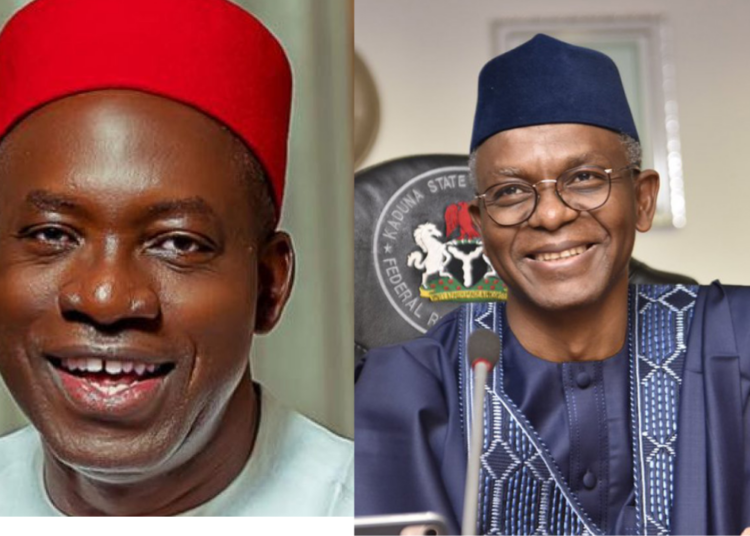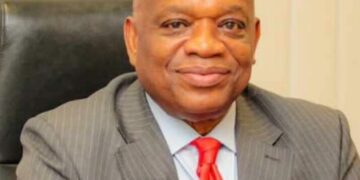Governors of Anambra and Kaduna states, Professor Charles Soludo and Mallam Nasir El-Rufai, will on Tuesday headline a high-level policy deliberation on pathways for creating a robust and resilient economic future for Nigeria.
The governors will serve as panelists at a policy conversation in Abuja, which is jointly organised by the Africa Programme of the US-based Carnegie Endowment for International Peace and the Abuja-based Agora Policy. Billed to attract the crème of Nigeria’s economic, political, academic and policy elite, the event will focus on: “How Nigeria Can Build a Post-Oil Economic Future.”
Other confirmed panelists at the event are: former CEO of Access Bank, Mr Aigboje Imoukhuede; World Bank’s Country Director for Nigeria, Dr Shubham Chaudhuri; and director of the Carnegie Africa Programme, Dr.Zainab Usman.
Carnegie Endowment for International Peace, established in 1910, is one of the oldest and most respected think tanks in the world. It was ranked as the number one think tank on the 2020 Global Go-To Think Tank Index published by the Think Tanks and Civil Societies Programme of the University of Pennsylvania, US. Agora Policy is a nascent Nigerian think tank committed to generating evidence-based and practical solutions to Nigeria’s urgent challenges.
It was founded by Waziri Adio, immediate past executive secretary of the Nigeria Extractive Industries Transparency Initiative (NEITI) and one of Nigeria’s leading columnists.
The Tuesday event will also feature a presentation and an exposition on the policy implications of Dr Usman’s book titled, “Economic Diversification in Nigeria: The Politics of Building a Post-Oil Economy.” The book was voted as one of the Best Books of 2022 on economics by the Financial Times.
Building on Usman’s PhD thesis at the University of Oxford, the book uses data and theoretical frameworks to challenge received wisdoms about Nigeria’s economic trajectory.
Beyond their positions as state governors, Soludo and El-Rufai will share insights from their diverse backgrounds in the economic and governance policy arena in Nigeria—Soludo, as a professor of economics, former Chief Economic Adviser to the President, and former Governor of the Central Bank of Nigeria (CBN); and El-Rufai as former Director-General of the Bureau of Public Enterprises (BPE), a member of the Economic Management Team (EMT) and a member of the Policy Implementation Committee under General Abdulsalami Abubakar.
The other speakers will also bring to bear their rich and varied backgrounds in the private sector, international development, policy advisory, and research. Mr Aig-Imoukhuede, the founder of the African Initiative for Governance (AIF), will explore the imperative of collaboration between the public and private sector; Dr Shubham Chaudhuri, also a former professor of economics at Columbia University, New York, will identify lessons from countries with similar size and challenges as Nigeria; and Dr Zainab Usman, will draw from her academic research, her work as the pioneer director of the Carnegie Africa Program, and her stint working on different countries at the World Bank.
The event is holding against the backdrop of the global conversation about climate change and transition away from fossil fuel, Nigeria’s historic economic underperformance and current economic challenges, and the transition to a new administration later in the month.
Some of the questions for deliberation at the event will include: “Why is Nigeria’s economy performing below its vast potential?” “How do power, politics, and decision-making affect this economic development challenge?” “What can be done to position the Nigerian economy on a path of sustained growth, transformation and diversification?”
The presentations and the panel discussion will be followed by a robust interactive session with the participants drawn from diverse policy backgrounds.





